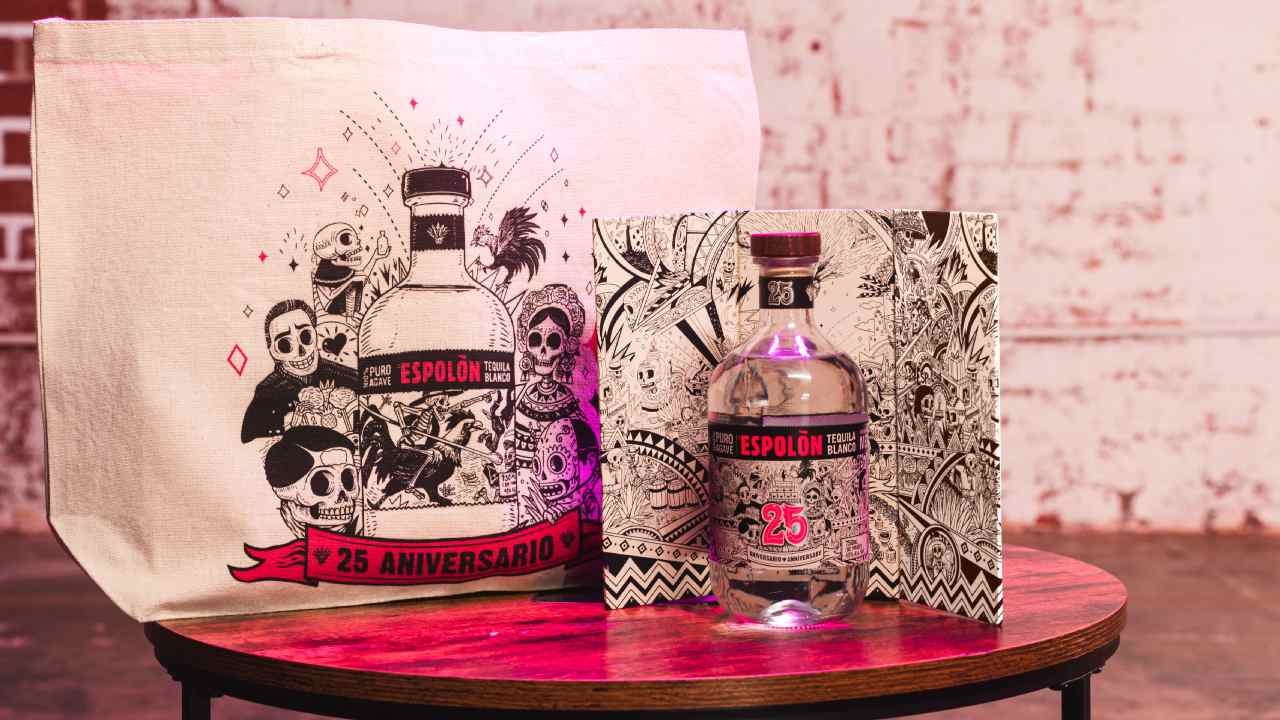Anylabel founded in Chile
The multitude of destinations requires labels to be printed in many languages. Wine labels – for both the front and back of the bottle – also require a great deal of variable information, including the grape, origin, year of production, legal information and barcodes. The trend towards shorter runs and proliferation of SKUs in the wine label market has resulted in digital printing taking a firm foothold in the local industry: HP Indigo has more presses per capita in Chile than anywhere else in Latin America, while the country was Xeikon’s top market in the region last year.
But, according to Anylabel founder Jaime Dagnino, the fragmented nature of the local market – the average wine label run in Chile is just 2,400 labels if you count variations within a job – can cause logistical problems for both the converters and the vineyards. ‘If a foreign distributor orders more cases at the last minute, the vineyard needs to be able to get hold of these labels at short notice,’ he says. ‘Often these vineyards will be in remote locations without easy access, due to the logistical challenges caused by Chile’s geography. Add these issues to current market dynamics of promotions, online purchases, new product SKUs, variable data, less time to market, and traceability etc – combined with the higher investment and running costs of the bigger digital presses – and we see a gap in the market for a solution for flexible production of very short runs of high quality labels.’
Dagnino’s response was to found Anylabel in 2016, following three years of research into the local wine label market and testing of different printing technologies. Central to the new company’s offering is the Anytron LED toner-based digital printer and finisher manufactured by South Korean company Bitek Technology, for which Dagnino has secured exclusive distribution rights in Chile and a number of other Latin American countries. The machine is rebranded as Anylabel and the company also provides service and consumables – including an exclusive toner specially developed for the project.
The twist is that Anylabel is pitching the system to both label converters and the vineyards themselves. The vineyard can buy from the converter labels containing fixed artwork and information – stocks of which they routinely keep – and then overprint the variable data in-situ on the Anylabel machine, as required.
Vineyards
Dagnino says that more than 20 vineyards in Chile and Argentina – Latin America’s two major wine-producing countries – are looking at the system. ‘Every vineyard, irrespective of size, has these problems and can benefit from this solution,’ he says.
Converters, stresses Dagnino, play a key role in enabling their clients to overprint variable information labels in-house. ‘While AnyLabel was developed to be user friendly and compatible with existing printing technologies, substrates and processes, the greatest benefit is achieved when the system is fully integrated into the converter’s own processes, adding value via the converter’s expertise in image optimization, color and file management, and logistics infrastructure.’
The first user of the Anylabel system is Chilean wine label converter Colorama (see L&L issue 2, 2017). It initially agreed to install the printer on a trial basis so Anylabel could use the company as a showroom. Six months later, it has been fully incorporated into production – housed in a dedicated room within Colorama’s factory – and is being used for very short runs, reverse side labels, overprinting, examples and trials. Colorama overprints some one million labels a month, and the company’s business manager and partner Carlos Scheuch reports that more than half this figure is already going through the Anylabel machine.
Further installations have taken place in Argentina, at a Mendoza-based digital printing company which has bought the machine in order to begin wine label printing. This site, too, will shortly become a demo center for Anylabel in Argentina. Colombian label converter Rioflex Adhesivos is the third company to adopt the system, and is using it to print labels for the country’s huge export market in flowers.
Jaime Dagnino also runs Chilean distributor Proflexo International, and it was during a research project by Proflexo that the idea for Anylabel emerged before spinning off to become a company in its own right. Seeing the potential in the local market, Dagnino ran tests of 5,000 wine labels across a variety of digital printing technologies before settling on LED toner, judging it to have the best balance between production quality, size of investment and running costs. ‘The analysis had to take into account hourly costs, including the initial investment,’ he says. ‘LED toner is a more stable system with better cost ratios for industrial applications.’
Technology
At Labelexpo Europe 2015 Dagnino saw Bitek’s upgraded Anytron digital printer. ‘Improvements had been made in key areas such as registration, which crucial for overprinting. Automatic tension control had improved the print quality significantly. The machine has an external unwind and a wider diameter, so it can handle standard rolls of materials – nothing different is needed. A wide range of materials can be used and the machine has few limitations with regard to the breadth of markets it can serve, though it is particularly well-suited to wine, liquor, food, craft beer and cosmetics. The costs per label are consistent: there is no minimum quantity for profitability.’
Running at 9m/min, the machine is not fast, though this is not an issue for short runs of wine labels, according to Dagnino. With quicker set-up, time is recovered. There are theoretically no limits to run lengths, but Dagnino says that under 20,000 labels sees the best range for the system, depending on the finishing required.
Regarding productivity, Dagnino says that the AnyLabel machine can print up to one million wine labels per month, based on single shift production. When additional capacity is required, additional machines can be linked up in series.
Because of the variability of toner quality within the market, Anylabel works with a specialist European manufacturer which has developed a CMYK toner exclusively for Anylabel and for the needs of the label market. ‘For self-adhesive labels, this is so important. It was a key decision for us. By adjusting the formulation of the toner, we could improve print quality,’ says Dagnino. ‘The result is a better intensity of black, widely used in wine labels, and an area where inkjet technology, for example, can fall short.’ An expanded toner range, including white and gold metallic effects, is in the pipeline.
LED toner brings a variety of advantages, according to Dagnino. ‘It provides excellent definition and color predictability. The material doesn’t need pre-treatment, and it allows excellent adhesion and performance in extreme environments such as water and ice.’
Avery Dennison and Ritrama are among the leading suppliers to have certified their materials for use on the Anylabel machine, following months of testing.
Dagnino has fervent belief in the Anylabel project, which has received backing and investment from silent partners from within the label industry. He is now fully dedicated to it, leaving Proflexo to be run by his team there. Speaking about Anylabel during a speech at Label Summit Latin America, held in the Chilean capital Santiago in May, Dagnino revealed that SKU atomization is not just a trend, but it is actually part of the ambitious ‘2025 strategy’ of the Chilean wine industry to consolidate itself as the number one producer of premium sustainable wines.
‘AnyLabel is the result of our accumulated knowledge of more than 20 years selling and servicing highly automated printing and converting machines. AnyLabel is focused in leveraging digital printing within the supply chain. We digitalize the ‘last mile’, closing the loop between the consumer and the product, generating efficiencies not possible without digital,’ he concludes. ‘We are filling a gap in the market: no one else has used the technology in this way or with these results.’
A distribution network is being set up across Latin America, with agents in Argentina, Colombia and Ecuador already in place.
Stay up to date
Subscribe to the free Label News newsletter and receive the latest content every week. We'll never share your email address.


